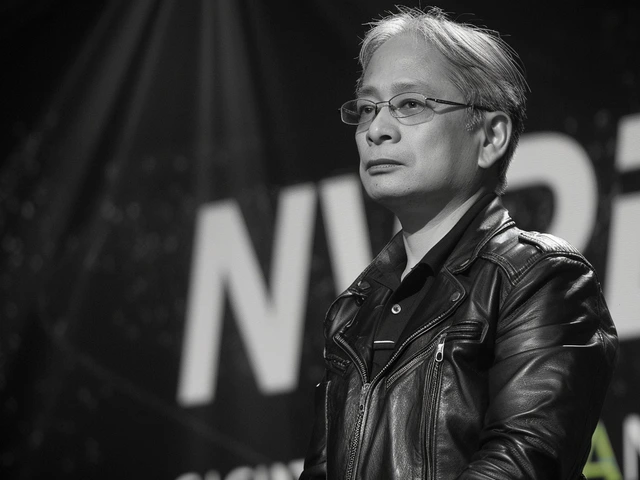
The Rise and Reputation of Alice Munro
Alice Munro, celebrated worldwide as a master of short storytelling and a Nobel laureate, has penned works that delve deep into the intricacies of human relationships and the complexities of life. The Canadian author's stories have frequently been lauded for their psychological depth, nuanced characters, and subtle revelation. Over the years, her literary prowess has earned her countless awards, and she has firmly established herself as one of the pre-eminent voices in contemporary literature. However, recent revelations have cast a shadow on her illustrious career, bringing to the forefront uncomfortable questions about morality, responsibility, and the silence of those we hold in high regard.
Andrea Robin Skinner's Heartbreaking Confession
A seismic shift occurred when Andrea Robin Skinner, Munro's youngest daughter, exposed a dark secret that shattered the facade. For years, Skinner harbored a painful truth: she had been sexually abused by Gerald Fremlin, Munro’s second husband and Skinner’s stepfather. This was not a fleeting episode; the abuse commenced when Skinner was just a child and continued relentlessly for years. Despite her efforts to confide in her family, Skinner was met with a wall of apathy and denial. Her desperate attempts to find solace were largely unsuccessful, with even her biological father, Jim Munro, refusing to confront his former wife or the abuser.
The Silent Pain: Family's Response and Munro's Stance
It is often said that silence speaks volumes, and in the Munro family, this silence was deafening. Andrea's confessions fell on deaf ears, leaving her isolated and perpetually scarred. Munro’s choice to remain with Fremlin, despite being aware of his heinous actions, is particularly harrowing. This decision forces us to grapple with the apparent dichotomy between a person’s public virtues and private failings. Munro's literature is filled with characters who grapple with moral dilemmas, yet in her personal life, she chose a path that many find indefensible.

The Aftermath: Gerald Fremlin’s Admission of Guilt
The tides turned in 2005 when Gerald Fremlin was finally charged and subsequently pleaded guilty to sexually abusing Skinner. This pivotal moment offered a semblance of justice, albeit delayed. However, due to Munro’s prominent status, the news was intentionally kept out of the public eye. The family continued to shield this harrowing truth, ensuring that Munro's illustrious public persona remained unmarred. This act of concealment has significantly affected Munro's fans, leaving them grappling with a troubling reality about their literary idol.
Dissecting the Moral Fallibility of Literary Idols
Renowned writer James Baldwin once stated, "The artist's struggle for integrity is a kind of war." Munro's story underscores the complexity and often uncomfortable reality of that struggle. When a beloved figure like Alice Munro is implicated in such a dire situation, it forces us to reassess our understanding of integrity, morality, and accountability. The unwavering adoration showered upon literary icons often blinds us to their human flaws, leading to a perilous deification that overlooks their shortcomings. Munro's silence in the face of her daughter’s suffering raises vital questions about the responsibilities and ethical obligations of those we revere.
Fans' Reactions and the Broader Conversations
The revelations regarding Munro have stirred intense emotions within the literary community and beyond. Fans, once enamored by her storytelling prowess, now confront a sense of betrayal and disillusionment. How can one reconcile the profound empathy and understanding embedded in Munro’s stories with her evident failure to protect her own child? These revelations ignite broader conversations about the cost of silence, the impact of familial loyalty, and the repercussions of unchecked abuse. They also highlight the need for a more discerning and critical evaluation of those we admire.

The Ripple Effects: Discussions on Silence and Accountability
In the wake of these revelations, discussions surrounding the culture of silence and accountability have gained renewed urgency. Alice Munro’s predicament serves as a poignant reminder that the allure of fame and recognition should never overshadow the imperative of speaking out against wrongdoing. Andrea’s courage in sharing her story, despite the personal and public ramifications, underscores the necessity of breaking the silence that often enables abuse to continue unchecked. Her story is a powerful testament to the resilience of survivors and the importance of addressing and acknowledging their experiences.
Examining the Dichotomy of Munro's Literary and Personal Life
The disparity between Alice Munro's literary achievements and her personal choices opens a dialogue on the broader tensions between art and the artist. Can one separate the creator from their creations? Munro’s works have touched countless lives, offering solace, understanding, and a mirror to our inner conflicts. Yet, the revelations about her private life demand a re-evaluation of how we contextualize and consume art. This dichotomy challenges readers to navigate the complexities of admiring someone’s talent while acknowledging their flaws.
Looking Forward: The Legacy of Alice Munro
Alice Munro’s legacy, once untarnished, now carries a significant blemish. Her contributions to literature remain indelible, yet her story also serves as a critical reminder of the multifaceted nature of human experience. The discourse surrounding Munro encourages a deeper examination of the responsibilities attached to admiration and the moral imperatives that accompany both personal and professional lives. As we continue to celebrate her literary brilliance, it is equally essential to confront the uncomfortable truths that her story brings to light.
The Takeaway
The revelations concerning Alice Munro and her family are a stark reminder that the people we idolize are as fallible as anyone else. Their art might transcend the everyday, but their actions remain grounded in the same moral and ethical realms that bind us all. The pain and resilience of Andrea Robin Skinner stand as a testament to the enduring human spirit and the importance of confronting and addressing abuse head-on. Munro's story invites us to engage with a nuanced understanding of morality, fame, and the many facets that comprise the human condition.
July 10, 2024 AT 18:29
LMAO so now we gotta cancel all artists because their family drama is messy? 🤡 I mean come on, she wrote great stories, that's it. Stop making everything a moral panic. #FreeAliceMunro
July 12, 2024 AT 10:41
Typical. The moment someone is successful, their private life gets dissected. But what about the abuser? He’s the criminal. She’s the enabler. And now we’re all supposed to feel guilty for liking fiction?
July 12, 2024 AT 11:33
Man. This is the kind of thing that makes you realize how fragile hero worship is. I used to quote Munro like she was some wise old sage. Now I just feel sad. Sad for Andrea. Sad that someone so brilliant could be so blind. And honestly? It’s not even about canceling her - it’s about realizing we don’t owe people our admiration just because they’re talented.
July 13, 2024 AT 01:04
Wait so her husband abused her daughter and she didn’t do anything? Did she even know? Or was she just too busy writing about women’s inner lives to notice her own kid was falling apart? That’s some next level denial
July 14, 2024 AT 08:30
This whole thing is just media spin. Fremlin plead guilty? That’s a legal thing. Doesn’t mean he did it. And Munro? She’s a writer not a social worker. People need to chill. Also typo in the article: 'sequestial' lol
July 16, 2024 AT 00:29
In India we have a saying - 'Ghar ka jadoo, ghar ki baat' - what happens inside the home stays inside. But this isn't just family business. It's a violation that echoes beyond the house. Andrea’s voice matters more than any award. We honor courage, not just talent.
July 16, 2024 AT 14:26
The paradigm shift here is profound. The artist-as-icon model is being deconstructed in real time. We're moving from aesthetic idolatry to ethical accountability. Munro’s silence represents a systemic failure of the literary establishment to prioritize survivor narratives over canonization.
July 17, 2024 AT 13:28
I’m just… really sad. Like, I still love her stories. But now every time I read one, I wonder if she wrote it while ignoring her daughter’s cries. That’s not art. That’s avoidance. 😔
July 17, 2024 AT 22:17
Oh please. The Nobel Prize is just a gold-plated trophy for people who write about tea and silence. Meanwhile, real people suffer in silence and nobody gives a damn. Now they’re mad because the ‘great writer’ didn’t save her own kid? Wake up.
July 18, 2024 AT 11:44
I just want to say - Andrea, you are SO BRAVE!!! 💪❤️ This world needs more people who speak up, even when it hurts. And to everyone else - don’t let your idols become your idols. Let them be humans. And humans? They mess up. But you? You can choose to heal. And you can choose to speak. I believe in you!!
July 20, 2024 AT 00:18
The most important thing here isn't whether Munro's work still has value. It's that a daughter came forward after decades of silence, and the world finally listened. That’s the real story. The art will endure. The trauma doesn't vanish just because the writer is gone.






July 10, 2024 AT 12:10
This broke my heart. I've read Munro's stories since college and always felt like she understood loneliness so deeply. But knowing she stayed silent while her daughter suffered? That changes everything. I don't know how to separate the art from the person anymore.
Andrea's courage to speak up after all these years? That's the real legacy here.